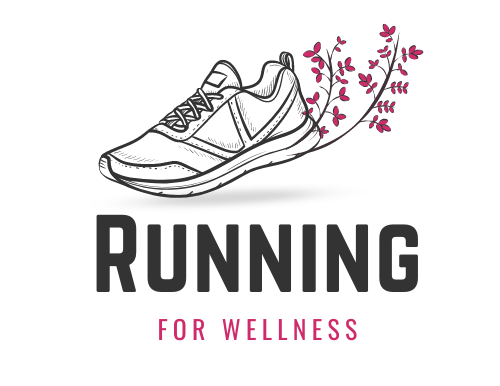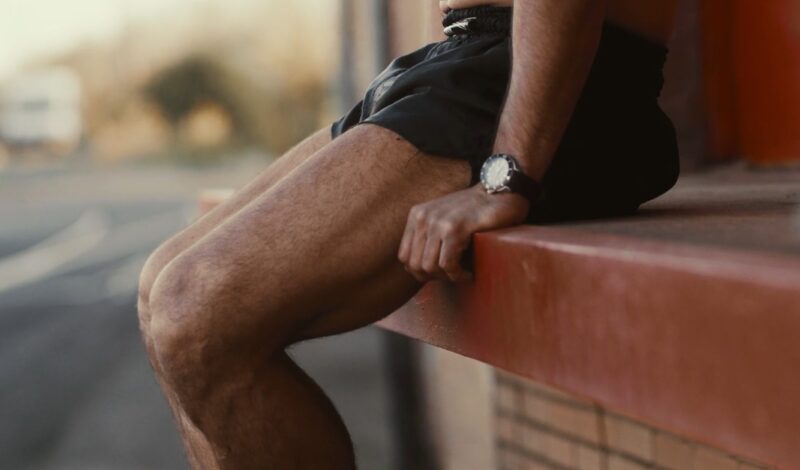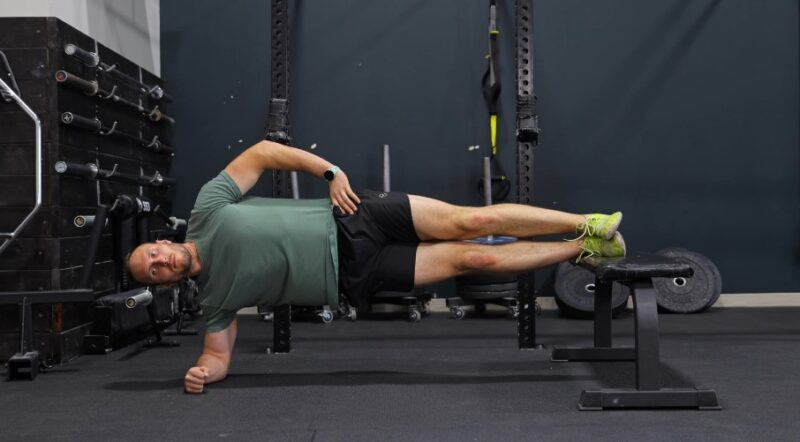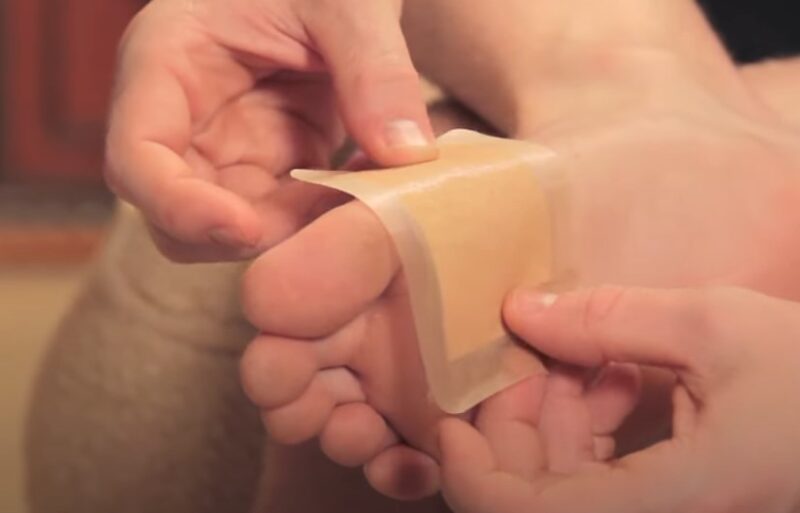Ever wrapped up a grueling workout, only to find your legs shaking like a leaf in the wind? Yeah, me too. Let’s get to the bottom of why this happens and what you can do about it.
Table of Contents
ToggleA Quick Look
- Muscle fatigue is the usual suspect.
- Keep an eye on your blood sugar and hydration.
- Balance those electrolytes.
- Don’t overdo it when working out.
1. Muscle Fatigue
The most obvious reason your legs are doing the cha-cha after a workout is muscle fatigue. You’ve just put those muscles through the wringer, and now they’re rebelling.
During intense exercise, your muscles are working overtime, using up energy reserves, and accumulating metabolic waste products like lactic acid. This can make them feel weak and shaky post-exercise.
According to Loren G. Martin, muscle fatigue is a primary cause of tremor and shaky legs after working out because it results from the depletion of energy stores in muscle fibers and the central nervous system’s reduced ability to sustain motor unit function. As muscles tire, the motor units responsible for muscle contraction drop out of service, leading to involuntary shaking.
How to Deal with Muscle Fatigue
- Rest: Give your muscles time to recover, try sauna for example.
- Hydrate: Drink plenty of water to help flush out toxins.
- Stretch: Gentle stretching can ease the tension in your muscles.
2. Low Blood Sugar

If you’ve ever felt dizzy, shaky, or downright cranky after a workout, low blood sugar might be to blame. Exercising burns up glucose, which is your body’s primary energy source. When levels drop too low, you start feeling wobbly.
Low blood sugar, or hypoglycemia, can lead to tremors and shaky legs after exercise because muscles rely on glucose for energy. When glucose levels drop too low during or after a workout, the body struggles to maintain muscle function, causing these symptoms. – Zawn Villines
Quick Fixes for Low Blood Sugar
- Snack: A post-workout snack with protein and carbs can help replenish your energy.
- Monitor Intake: Make sure you’re eating enough before working out.
3. Dehydration

Water is essential for nearly every bodily function, including muscle performance. When you’re dehydrated, your muscles don’t work as well and are more prone to cramping and shaking.
As per Nautilus SHC, dehydration causes tremors and shaky legs after working out because it disrupts the balance of electrolytes, which are crucial for proper muscle function. Without sufficient hydration, muscles cannot contract efficiently, leading to involuntary shaking.
Hydration Tips
- Drink Before, During, and After: Don’t wait until you’re thirsty.
- Electrolytes: Sometimes plain water isn’t enough. Consider drinks that replace electrolytes, especially after heavy sweating.
4. Electrolyte Imbalance

Electrolytes are minerals like sodium, potassium, and magnesium that help conduct electrical signals in your body. If they’re out of whack, your muscles can’t function properly, leading to those annoying tremors.
Electrolyte imbalance causes tremors and shaky legs after working out because it disrupts the normal electrical activity necessary for muscle contractions. When electrolytes like sodium, potassium, and calcium are out of balance, muscles can become unstable, leading to spasms and shaking. – Henry Ford Health
Balancing Electrolytes
- Electrolyte-Rich Foods: Bananas, avocados, and leafy greens are great choices.
- Supplements: If your diet isn’t cutting it, consider an electrolyte supplement.
5. Nervous System Overload
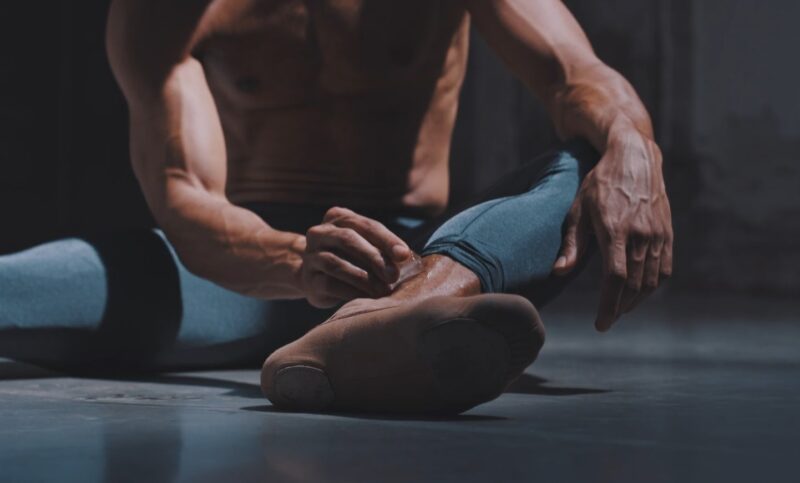
Your nervous system plays a crucial role in muscle function. During intense exercise, your nervous system is firing on all cylinders to keep your muscles contracting. After you stop, it can take a little while for everything to settle down, leading to shaking.
According to Kirsten Nunez, during intense exercise, the central nervous system fires motor units to contract muscles, and when these units become fatigued, it can result in shaking.
Calming the Nervous System
- Cool Down: Gradually taper off your exercise rather than stopping abruptly.
- Relaxation Techniques: Deep breathing or meditation post-workout can help calm your nervous system.
6. Lack of Conditioning

If you’re new to working out or trying a new type of exercise, your muscles might not be used to the strain. This lack of conditioning can make them more prone to shaking as they adapt to the new demands. Also, you are prone to injuries.
Improving Conditioning
- Start Slow: Gradually increase the intensity of your workouts.
- Consistency: Stick with a regular workout routine to build muscle endurance.
7. Overexertion
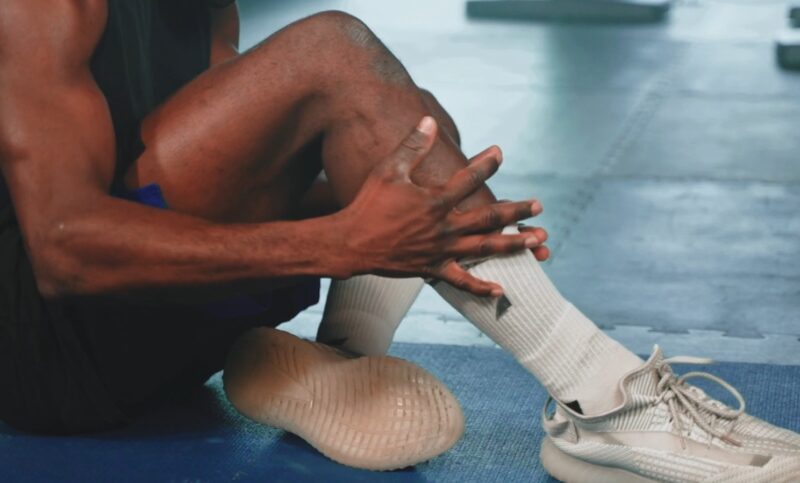
We’ve all been there. You push yourself too hard, and your body fights back. Overexertion can lead to significant muscle fatigue and shaking.
Avoiding Overexertion
- Listen to Your Body: Pay attention to signs of fatigue.
- Proper Form: Using the correct form can prevent unnecessary strain on your muscles.
8. Medical Conditions
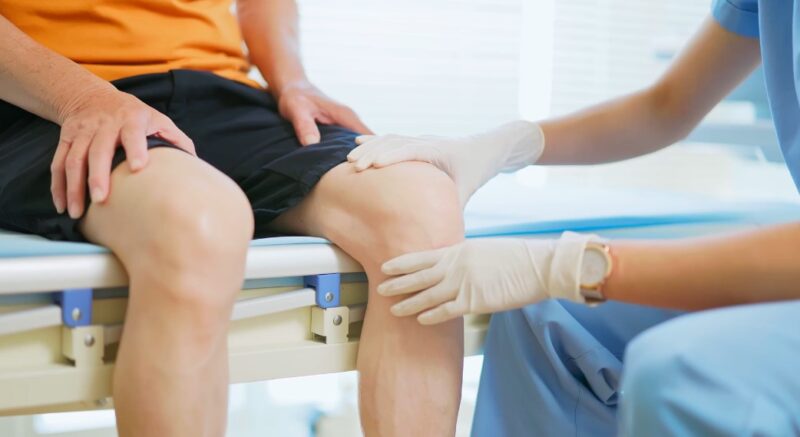
Sometimes, shaky legs can be a sign of an underlying medical condition, like thyroid issues, neurological disorders, or even certain medications.
When to Seek Medical Advice
- Persistent Shaking: If your legs shake long after a workout, it might be time to see a doctor.
- Other Symptoms: If you have other symptoms like pain, numbness, or weakness, get it checked out.
Wrapping It Up
Having shaky legs after a workout is a pretty common experience. Most of the time, it’s nothing to worry about and can be fixed with some simple tweaks to your routine. Whether it’s staying hydrated, eating right, or just not pushing yourself to the brink of collapse, there are plenty of ways to keep your legs steady.
So next time your legs feel like jelly after a gym session, don’t panic. You’ve just worked hard, and your body needs a little TLC. Give it what it needs, and you’ll be back to solid ground in no time.
Remember, fitness is a marathon, not a sprint. Stay consistent, take care of your body, and the results will follow. And maybe, just maybe, your legs will stop quaking after leg day.
Related Posts:
- Top 400 Hilarious Gym Quotes to Keep You Motivated
- How Long Does It Take to Train for a Half Marathon?
- How Far Is a Half Marathon? Everything You Need to Know
- Half Marathon Training Plan for Beginners - Simple…
- 25 Simple Running Motivation Tips To Get You Moving
- Can You Get an Eye Infection From Exercising With…
